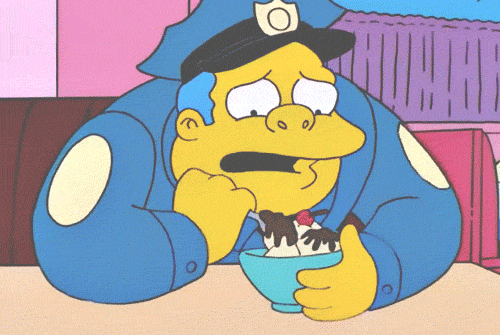
If your New Year’s resolution is to “lose that last 10 pounds” yet again, it might be time to let that fancy gym membership lapse and consider taking a good, hard look at yourself in the mirror. Preferably while you’re downing a supersized Bacon McBypass burger with fries. Because the results are in, and science has spoken: Eating in front of a mirror can decrease the perceived tastiness of an unhealthy meal.
This is from University of Central Florida researcher Ata Jami’s new study, published recently in the inaugural edition of the Journal of the Association for Consumer Research. What Jami and his team did was feed 185 undergrads chocolate cake and fruit salad (each chose just one option of the two), and had the students evaluate the taste of their food in a room either with or without a mirror. The healthy fruit-salad eaters didn’t perceive the taste of their dish any differently between the mirror room and the non-mirror room, but the chocolate-cake eaters sure did; in the room with the mirrors, they found their cake to be less tasty.
So, what the heck is going on? Essentially, when you see yourself chowing down on something you know you shouldn’t be eating, you send yourself on a wild guilt trip — and that guilt trip extends to the flavor of your food.
Or, as Jami explains in an article from the Cornell University Food and Brand lab, “A glance in the mirror tells people more than just about their physical appearance. It enables them to view themselves objectively and helps them to judge themselves and their behaviors in a same way that they judge others.”
The key part to the mirror component, though, is that the person eating the food has to have been the one to select the unhealthy food — to have made that poor choice. Otherwise, the self-induced guilt trip just won’t work.
Practically speaking, the whole idea behind the study is self-awareness. Using a mirror to watch yourself make bad decisions is just one step toward overall healthier eating, Jami believes. But there are other strategies, too. “In general, any cue that directs one’s attention toward self can increase self-awareness,” he writes. “For example, the presence of other people, being videotaped, listening to one’s own voice, and writing about oneself are a few methods to increase self-awareness (Baumeister 2010).”
As far as I’m concerned, I have three days left before I’m supposed to turn my life around, so if you need me, I’ll be in a dark room, shame-eating a whole cheesecake. Come Friday, those mirrors are going up. I do have to lose that last 10 pounds, after all.






